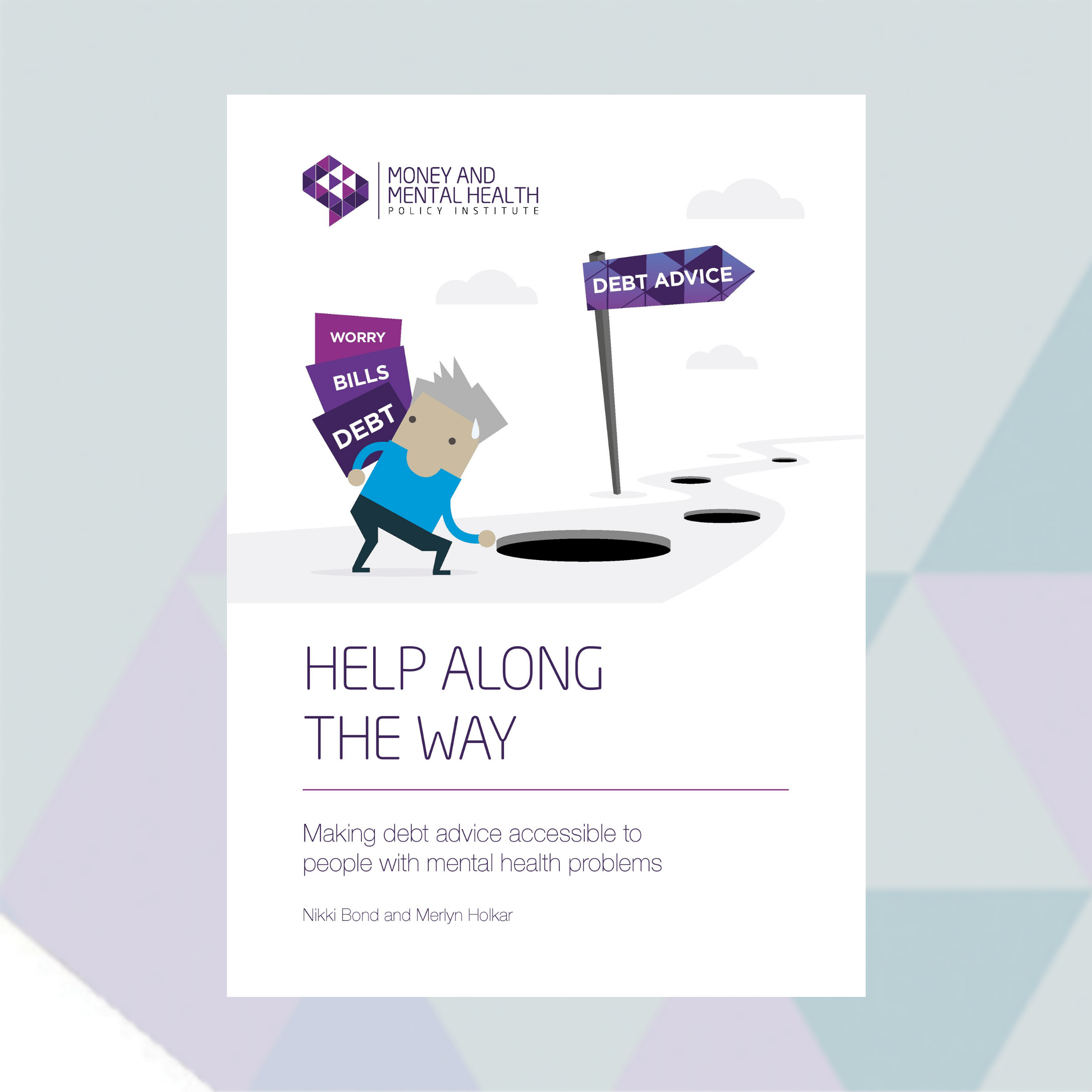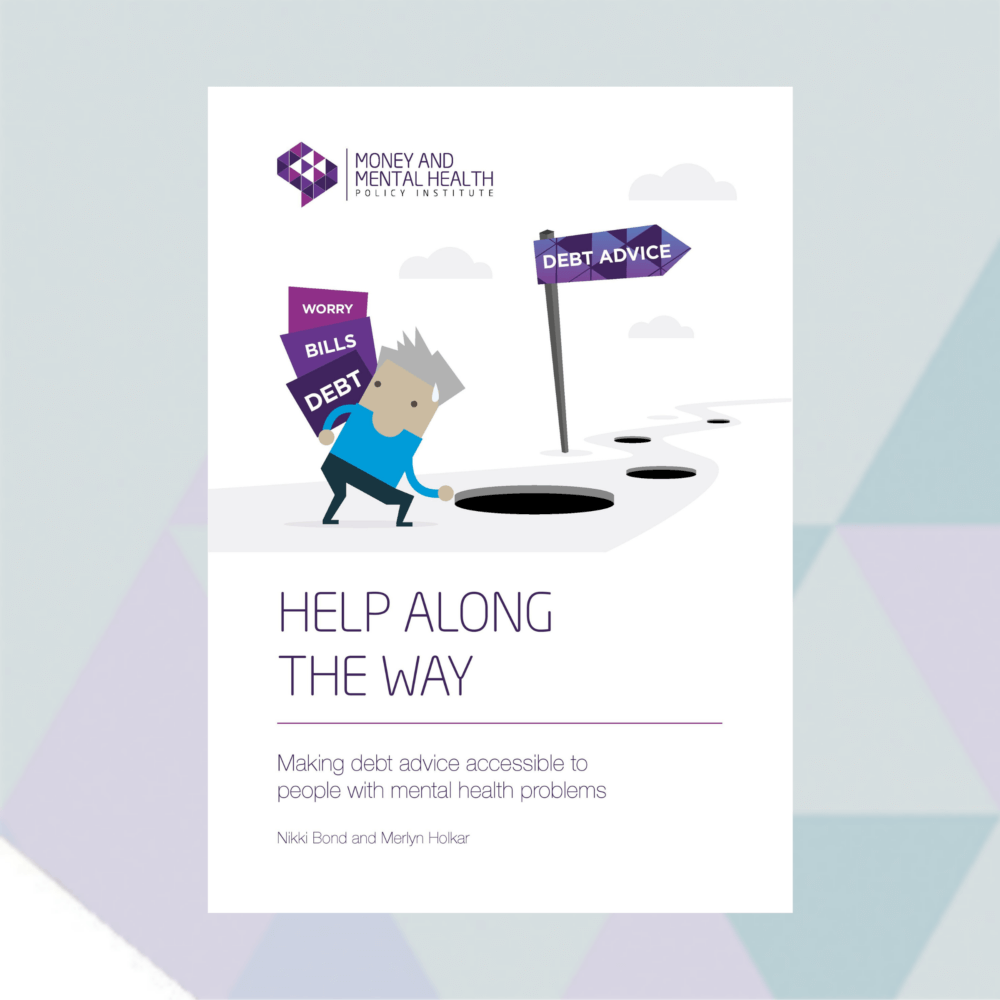Giving people with mental health problems equal access to vital services
Nikki Bond, Senior Research Officer, and Merlyn Holkar, Senior Research Officer
Help along the way
Making debt advice accessible to people with mental health problems
23 July 2020
This report explores how free debt advice can become more accessible to people with mental health problems. With half of people in problem debt experiencing a mental health problem, it sets out how the sector can better serve clients with mental health problems. In particular, it highlights:
- Common symptoms mental health problems, such as difficulties communicating, impaired clarity of thought, and reduced concentration or problem-solving skills can make it difficult for people with mental health problems to engage with debt advice
- Many people with mental health problems are struggling to access much-needed debt support
- With millions more at risk of distress and debt problems due to the pandemic, urgent action is needed to ensure those with mental health problems can easily access the free debt advice they need.
Key Recommendations:
- With mental health problems common among those seeking debt advice, the debt advice process should be made more accessible for all clients
- Debt advice providers should communicate with clients in an accessible way, providing them with information, options and well-equipped advisers to meet their needs
- Regulators and funders of debt advice, including the Financial Conduct Authority (FCA) and the Money and Pensions Service (MaPS), should ensure the regulations and funding that shape how debt advice is provided recognise the challenges faced by both people with mental health problems and the debt advice providers supporting them.

